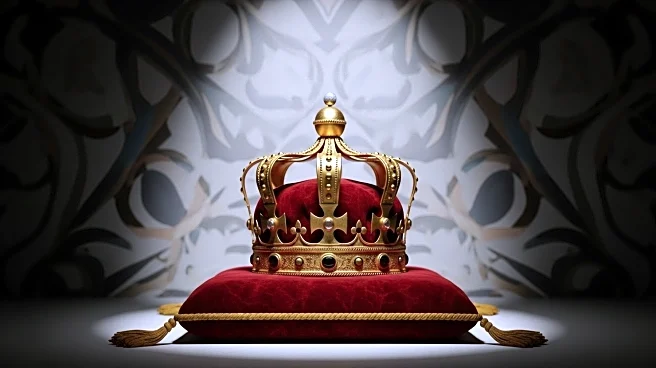What's Happening?
King Charles III's monarchy is facing a significant challenge as new data suggests declining popularity among Gen Alpha, the generation born between 2010 and 2024. This demographic is being raised by millennial parents who are increasingly supportive of abolishing the monarchy. The decline in royal popularity has been ongoing since 2021, following public disputes involving Prince Harry and Meghan Markle. Historically, Gen Z, born between 1997 and 2012, showed disapproval towards the monarchy, but the trend is now extending to Gen Alpha. The British Social Attitudes Survey indicates that for the first time, a generation of British children is not being raised by pro-monarchy parents. This shift is significant as it suggests a potential future where the monarchy could face increased calls for abolition.
Why It's Important?
The declining support for the monarchy among younger generations could have profound implications for the future of the British royal family. If Gen Alpha continues to grow up in an environment where the monarchy is viewed unfavorably, it could lead to increased pressure for constitutional changes in the UK. This shift in public sentiment may affect the monarchy's role in British society and its influence on global diplomacy. The monarchy has historically been a symbol of continuity and tradition, but changing attitudes among younger generations could challenge its relevance and lead to discussions about transitioning to a republic.
What's Next?
The monarchy may need to adapt to changing public sentiments to maintain its relevance. This could involve modernizing its image and engaging more directly with younger generations. The royal family might focus on leveraging the popularity of younger royals like Prince George, Princess Charlotte, and Prince Louis to appeal to Gen Alpha. Additionally, political leaders in the UK may face increasing pressure to address the monarchy's future, potentially leading to debates about its role and existence.
Beyond the Headlines
The erosion of support for the monarchy among younger generations raises questions about the cultural and historical significance of the royal family. It highlights the impact of past scandals and public disputes on the monarchy's image. The royal family's ability to navigate these challenges and maintain its position as a symbol of national identity will be crucial in the coming years.









